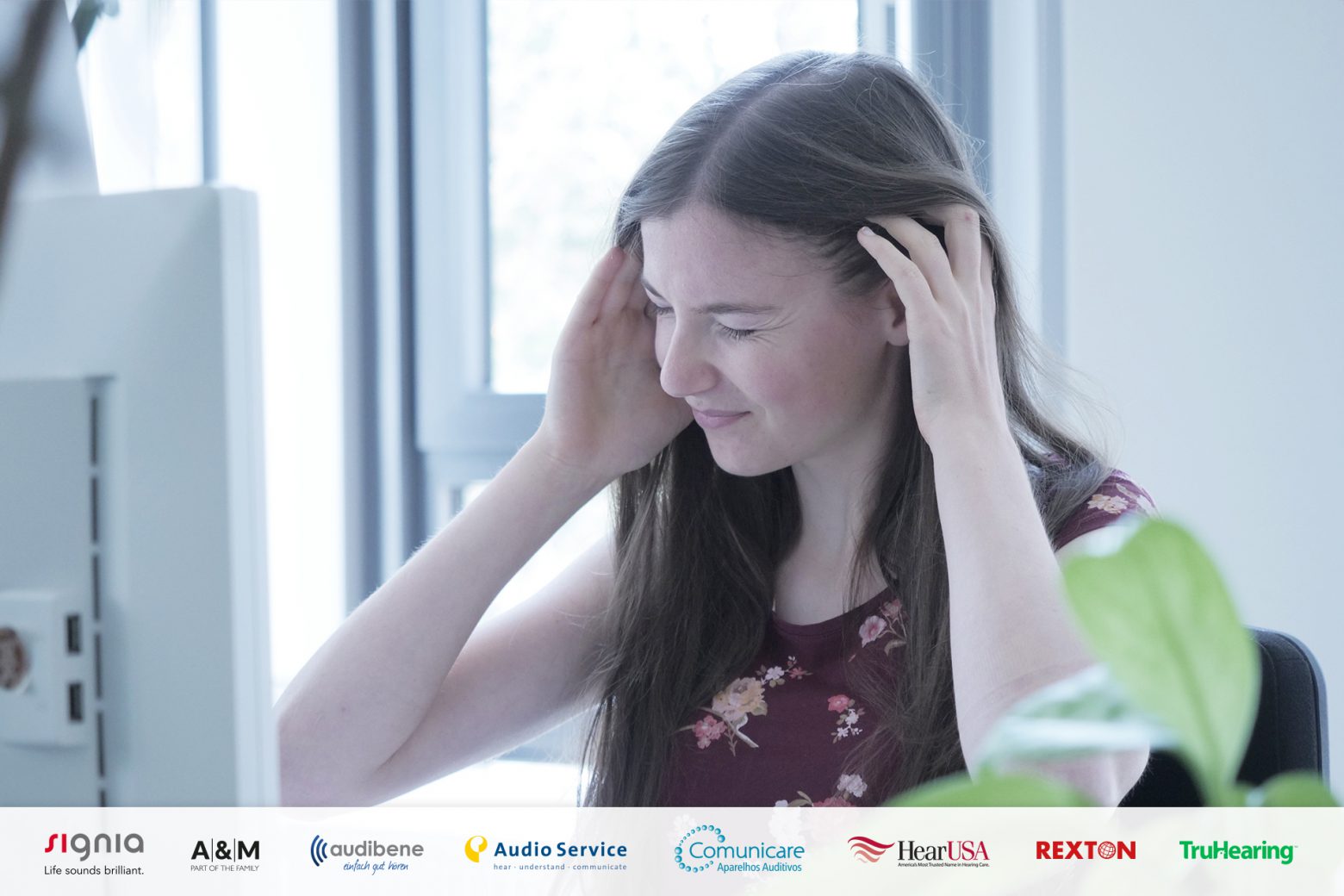Ringing, hissing, roaring, pulsing, or buzzing – tinnitus is a common phenomenon with many faces. While some aren’t really bothered by it, others are substantially limited in their everyday-life. Fortunately, there are different ways to cope with this disorder – including hearing aids.
Sivantos’ hearing aid brands offer high-tech solutions – not only to compensate hearing loss but also to relieve tinnitus noise. Plus, we are the first to integrate a new tinnitus approach called “Notch-therapy” in our hearing devices.
The causes for tinnitus widely vary
In general, tinnitus is described as the sensation of a sound without an actual external source. A publication from the Harvard Medical School in 2017 states that approximately 50 to 60 million people in the United States suffer from tinnitus. While the exact worldwide prevalence is unknown, it is estimated that up to 20% of the global population suffer from chronical tinnitus.
“There are over 200 causes outlined for tinnitus. They may be related to the auditory pathway. Hearing loss is the most common cause and affects about 90% of cases. Other quite common causes are dietary errors (metabolic causes) and muscle dysfunctions caused by trigger points in the head and cervical neck region”, said Gisele Munhoes dos Santos, Product Marketing Manager at Sivantos Brazil and Tinnitus expert. “Hearing loss is responsible for the generation of tinnitus in 90% of cases. This is because, lack of hearing generates an abnormal functioning of the auditory system, called hyperactivity, which is perceived in the brain as tinnitus.”
While tinnitus is as varied as its causes, it can be classified into two groups: tonal and non-tonal tinnitus. Tonal tinnitus is more common and describes the perception of a near-continuous sound or overlapping sounds with a well-defined frequency, such as whistling, ringing, or buzzing. Non-tonal forms of tinnitus include humming, clicking, crackling and rumbling. But not everyone feels affected.
“Since tinnitus is a symptom rather than a disease, its perception does not need to have any impact on the individual’s quality of life. However, for some patients, tinnitus has negative proportions and the impact on quality of life is distinct. The areas most affected are sleep, concentration and emotional “, said Santos.
Taking control over the ringing
A tinnitus diagnosis is often a surprise. More so, when patients learn from their doctors that the “ringing-in-the-ears” is untreatable. They feel isolated and are convinced that no one can understand what they are going through. Although, there is no specific medication or general cure, there are ways to find relief and take control, even for chronic tinnitus.
“It is important to avoid silent environments, as the tinnitus becomes dominant here in contrast. At the least sign of hearing loss, you should seek help, as we know that acoustic stimulation is able to prevent or reverse the perception of tinnitus and hearing aids play a key role. People suffering from hearing loss should know that we can do so much for them”, added Santos.
As tinnitus is not an illness but a symptom, the goal for the person suffering should be to find relief from the constant ringing. There are many ways to cope with this condition, such as changing habits and attitudes to give tinnitus less room in everyday-life or trying hearing aids.
Practical tips to find relief from tinnitus:
1. Be open minded and listen consciously to the world around you
Enjoy your favorite music or simply the sound of birds in the trees. Anything that provides your ears with varied sound impressions deflects attention away from tinnitus.
2. Have an active lifestyle and promote your physical fitness
Enjoy life with family and friends, include plenty of activity and variety and participate in sports. Everything that increases your personal sense of well-being and enjoyment of life decreases tinnitus’ hold over it.
3. Learn to relax
Because tinnitus causes tension, it is important to learn methods to relax yourself. Feldenkrais, yoga, tai chi, and qi gong can help to relieve stress and can soothe the internal noise.
4. Inform yourself about tinnitus
Consult additional reputable sources, for example tinnitus association websites and self-help organizations to find out more about tinnitus and exchange your experience with other people affected.
5. Contact your local Hearing Care Professional or Audiologist and try hearing aids
Hearing aids often have features that not only compensate hearing loss but can also help with tinnitus: They make it easier to listen to external sounds instead of permanently concentrating on the tinnitus.
•••••••••••••••••••
Do you have questions or comments? If you are an analyst, you will find the corresponding contact information on our Investor Reports page. If you are a journalist, please submit your request through our Message Center as Press. If you are interested in joining our team, please visit our Careers page learn more about opportunities with us. Suppliers can find relevant contact on the Suppliers page. Both hearing care professionals as well as people with hearing loss can find more information about the premium brand Signia on the websites.

